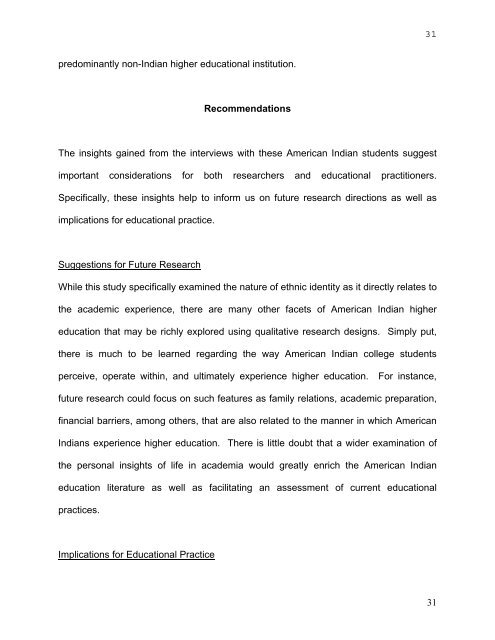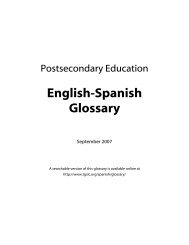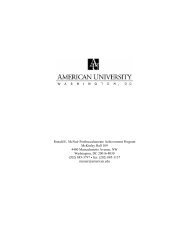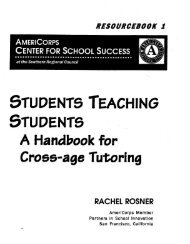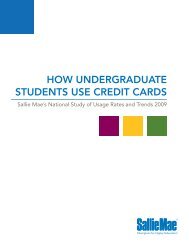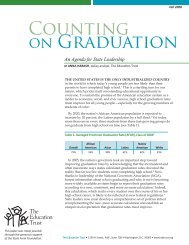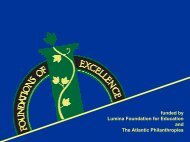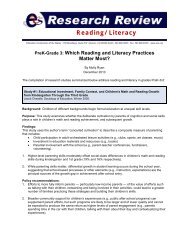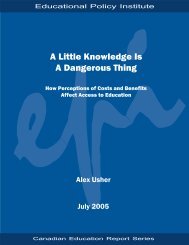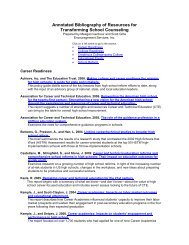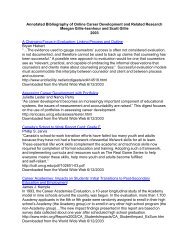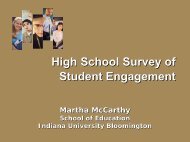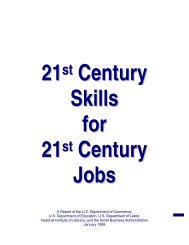Resistance Theory and the Transculturation Hypothesis
Resistance Theory and the Transculturation Hypothesis
Resistance Theory and the Transculturation Hypothesis
Create successful ePaper yourself
Turn your PDF publications into a flip-book with our unique Google optimized e-Paper software.
31predominantly non-Indian higher educational institution.RecommendationsThe insights gained from <strong>the</strong> interviews with <strong>the</strong>se American Indian students suggestimportant considerations for both researchers <strong>and</strong> educational practitioners.Specifically, <strong>the</strong>se insights help to inform us on future research directions as well asimplications for educational practice.Suggestions for Future ResearchWhile this study specifically examined <strong>the</strong> nature of ethnic identity as it directly relates to<strong>the</strong> academic experience, <strong>the</strong>re are many o<strong>the</strong>r facets of American Indian highereducation that may be richly explored using qualitative research designs. Simply put,<strong>the</strong>re is much to be learned regarding <strong>the</strong> way American Indian college studentsperceive, operate within, <strong>and</strong> ultimately experience higher education. For instance,future research could focus on such features as family relations, academic preparation,financial barriers, among o<strong>the</strong>rs, that are also related to <strong>the</strong> manner in which AmericanIndians experience higher education. There is little doubt that a wider examination of<strong>the</strong> personal insights of life in academia would greatly enrich <strong>the</strong> American Indianeducation literature as well as facilitating an assessment of current educationalpractices.Implications for Educational Practice31


